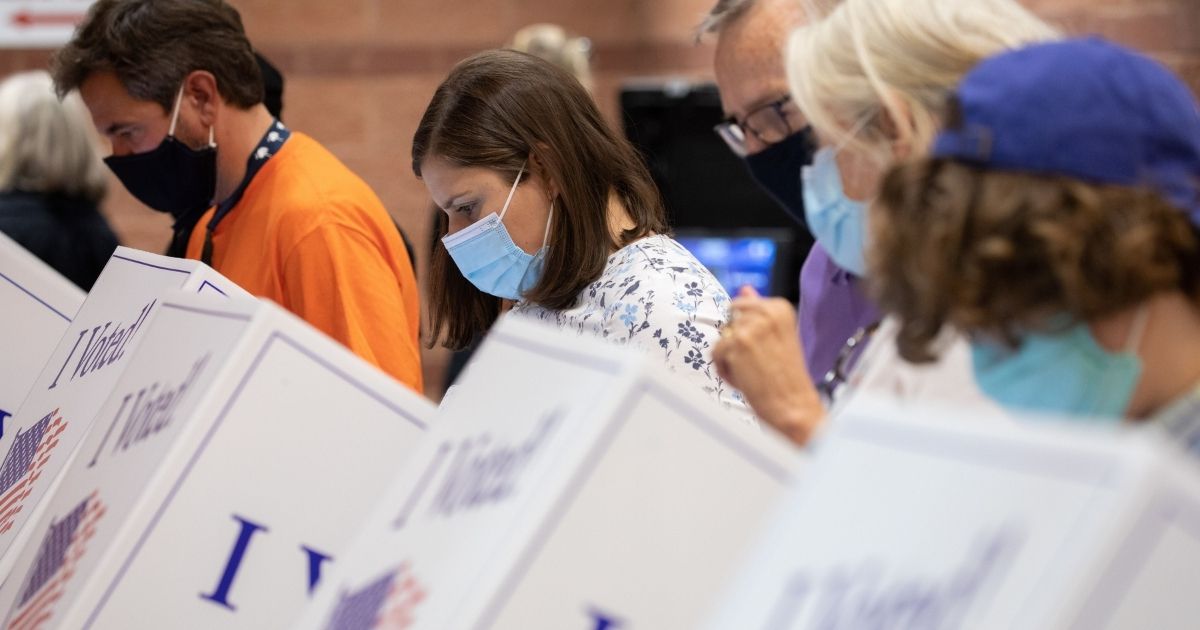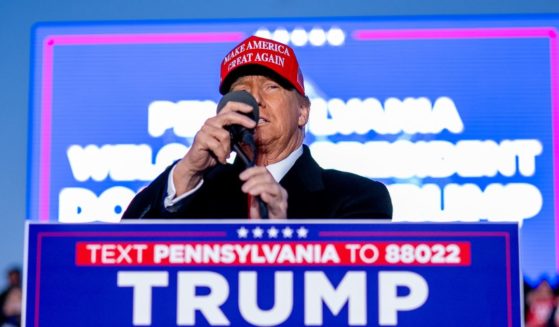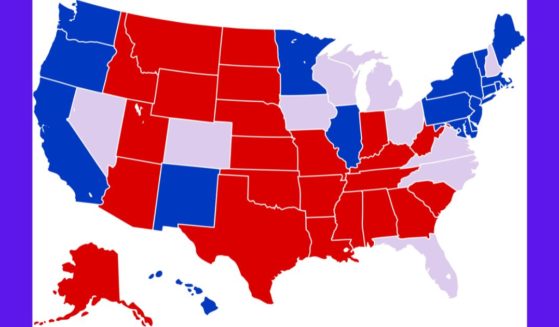
Georgia's New Election Law Isn't 'Voter Suppression': Here's What's Actually in the Bill
Led by Democrats and left-wing political activists, pushback to Georgia’s new election bill has been nothing short of fierce.
The bill in question (SB 202), signed into law on March 25, introduces a wide variety of election reforms — from requiring absentee voters to provide identification to banning the practice of line warming.
Many of the bill’s aforementioned critics have forwarded various accusations, claiming the bill’s aim is to prevent Georgia’s minority populations from voting.
Such accusations include claims that the bill discourages voting, suppresses minority voters and grants Republicans unbridled control of the election process.
Even the president of the United States joined in on the criticism, calling the bill “Jim Crow in the 21st Century” and “an atrocity” on March 26, according to CNN.
As it turns out, each of these criticisms is either false or incredibly misleading.
Requiring Voter ID Doesn’t Suppress Minority Voters
Concerns over fraud in the 2020 presidential election were largely centered around the massive increase in unsolicited vote-by-mail.
Prior to the election, the director of the Honest Elections Project — Jason Snead — explained to The Western Journal why implementing certain safeguards to mail-in voting is necessary for election security.
“When you’re also undermining other ballot safeguards like witness requirements, signature match, all of which are designed to ensure that the person voting a ballot is who they say they are, because after all, if you’re voting at home, not in a polling place, there’s no one there to make sure that you are who you say you are so you have to do something else to satisfy that basic requirement,” Snead told The Western Journal.
In response to these security concerns, the new Georgia law requires absentee voters to use a driver’s license or state ID (which Georgia citizens can acquire for free).
This would not severely restrict voting opportunities for minorities whatsoever, given that, according to the Atlanta Journal-Constitution, 97 percent of Georgia citizens already have such identification.
Moreover, if first-time voters are unable to provide a driver’s license or state ID, the law allows such electors to instead provide “a current utility bill, bank statement, government check, paycheck, or other government document” showing their name and address as a form of ID.
While many mainstream Democrats remain opposed to voter ID requirements, the majority of African-Americans support the implementation of such laws.
A recent Rasmussen poll found that 75 percent of all likely voters support voter ID, including 69 percent of black voters and 82 percent of “other minorities.”
Expanded Voter Access
In spite of what many left-wingers are saying, Georgia’s new law actually expands voter access to ballots.
None of the provisions serve to discourage voting or suppress the votes of minorities.
Many accomplish precisely the opposite.
One such provision requires precincts with lines longer than an hour to either “reduce the size of said precinct,” giving all present electors time to vote or find another precinct, “or provide additional voting equipment or poll workers, or both.”
Another provision requires all counties to provide four additional early weekend voting days, noting such a measure “will dramatically increase the total voting hours for voters across the State of Georgia.”
Additionally, while ballot drop boxes were provided in 2020’s election solely as a pandemic response rule that has since expired, SB 202 codifies the use of such boxes into law, albeit alongside numerous security measures.
Elected Officials Will Oversee the Process
Critics also claim the bill gives Republicans unprecedented control over Georgia’s election administration, which, according to these criticisms, could leave the election process wide-open for partisan abuse.
This is in response to a provision giving the Republican-majority General Assembly control over the State Board of Elections.
According to Will Saletan of Slate Magazine, this particular left-wing criticism is “overhyped.”
In his opinion, the previous status quo — where this oversight was instead bestowed to the secretary of state — “was arguably worse.”
Also overhyped:
– Election board now chaired by legislative appointee instead of secretary of state. Status quo was arguably worse: SOS is an elected officer (currently GOP). Also, the appointee can’t have participated in a party organization or donated recently to a campaign. /5— Will Saletan (@saletan) April 3, 2021
In the end, it isn’t technically “Republicans” that are given oversight of the election process, but rather the General Assembly (which happens to be, at this point, Republican-controlled).
If Georgia citizens have an issue with this, they can simply choose to elect more Democrats.
According to a March 30 blog post authored by the Heritage Foundation, a right-wing think tank, this process remains completely transparent.
“The bipartisan State Election Board can do performance reviews of local election supervisors who fail their area’s voters with things like long lines and unfulfilled absentee ballot requests. The board will not overturn election results; the law simply provides a process to review and ensure officials are technically competent and complying with state laws and regulations,” the post reads.
“This process requires a high burden of proof over multiple elections, and the State Elections Board may only suspend up to four election supervisors at any given time, which guards against using this process to try to influence election outcomes.”
Banning Line Warming
Perhaps the most mischaracterized provision in the bill bans the distribution of food and water to voters outside of polling stations.
Critics claim this is a tactic used to discourage voters who are hungry or thirsty while waiting in long lines.
In reality, this provision was added to ban the practice of “line warming,” where partisan organizations hope to game the election system by using giveaways and gifts to influence and pressure voters as they are about to enter the voting booth.
While the bill bans political organizations from handing out food and water, it carries no such restriction for poll workers themselves.
“This Code section shall not be construed to prohibit a poll officer from distributing materials, as required by law, which are necessary for the purpose of instructing electors or from distributing materials prepared by the Secretary of State which are designed solely for the purpose of encouraging voter participation in the election being conducted or from making available self-service water from an unattended receptacle to an elector waiting in line to vote,” the bill reads.
This Isn’t Jim Crow
In summary, many of the left’s critiques of Georgia’s new law seem to be based on false premises.
There isn’t even anything unprecedented about these measures — various states across the country already have similar checks in place to protect election integrity.
All the uproar about Georgia’s new voting laws, & look at this comparison to New York! There have been so many false claims about the new Georgia voting law as they try to safeguard election integrity in their state. #TruthMatters pic.twitter.com/kPlEpErjDr
— Franklin Graham (@Franklin_Graham) April 6, 2021
Georgia: Voter ID, 17 days of early voting.
Colorado: Voter ID, 15 days of early voting.Atlanta is 51% Black.
Denver is 9.2% Black.The @MLB is moving the #MLBAllStarGame out of ATL which has more day-of voting rights than CO?
The Wokes are at it again, folks.
— Tim Scott (@SenatorTimScott) April 6, 2021
Partisan attacks against the Georgia bill appear to be completely ignorant of the law’s actual composition.
Truth and Accuracy
We are committed to truth and accuracy in all of our journalism. Read our editorial standards.












